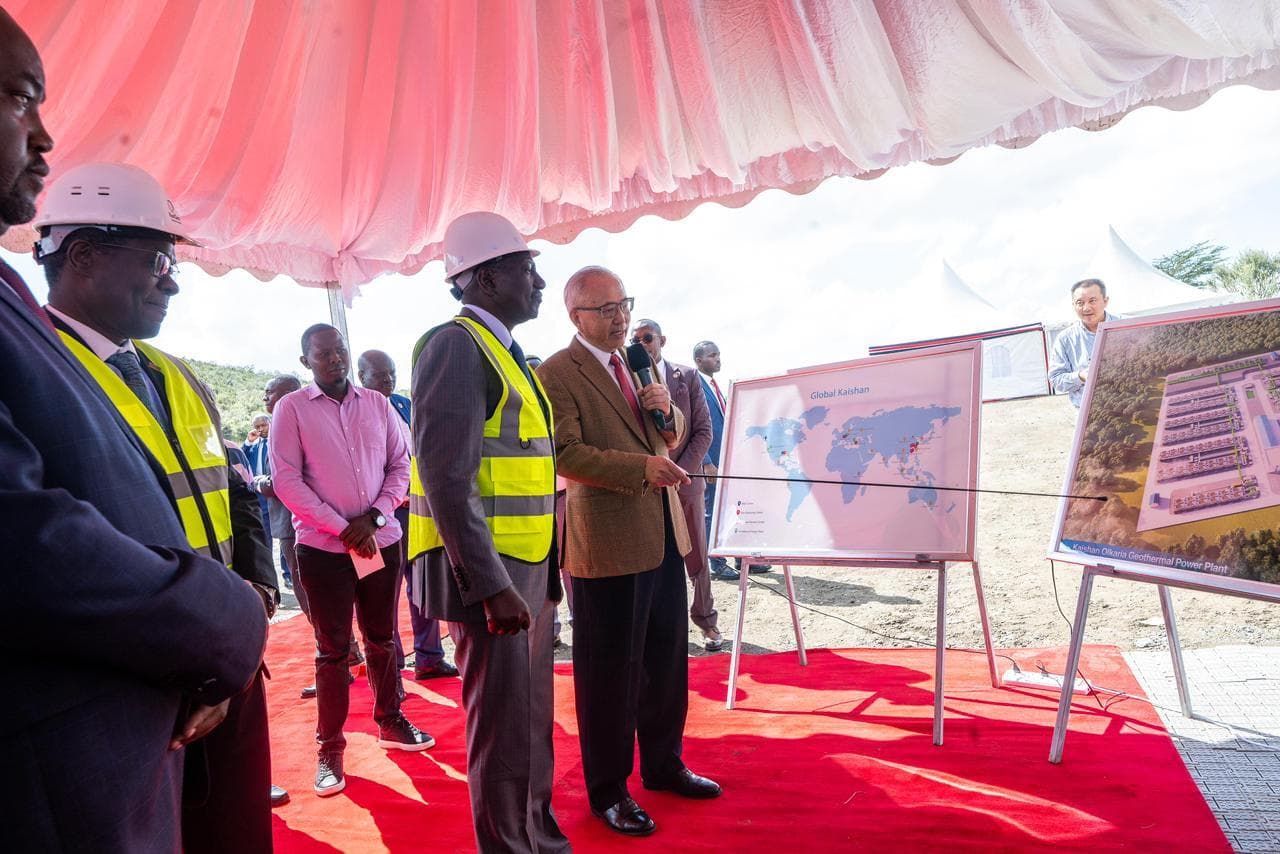We're loading the full news article for you. This includes the article content, images, author information, and related articles.
The Sh103 billion facility in Olkaria aims to slash import dependency, stabilise farmer costs, and bolster food security by producing 480,000 tonnes of green fertiliser annually.

NAIVASHA, KENYA – In a landmark move for Kenya's agricultural and energy sectors, President William Ruto presided over the groundbreaking ceremony for the world's first large-scale geothermal-powered fertiliser plant on Monday, November 3, 2025. The $800 million (Sh103 billion) facility, a joint venture between the Kenya Electricity Generating Company (KenGen) and China's Kaishan Group, is located in Olkaria, Naivasha, and is projected to commence full production by August 2026.
The project is a cornerstone of the government's strategy to achieve food security and reduce the economic strain of agricultural imports. "For decades, our farmers... have borne the burden of unpredictable fertilizer prices, supply shocks and global volatility," President Ruto stated at the ceremony. "Today's event marks a decisive step toward self-sufficiency and resilience in fertiliser production."
Kenya imported over 600,000 metric tonnes of fertiliser in 2023 and 443,000 tonnes in the first half of 2025 alone, at a cost of nearly Sh60 billion. This heavy reliance on imports exposes farmers and the national economy to global supply chain disruptions and price volatility, which have previously led to reduced yields and higher food costs.
The Olkaria plant will leverage Kenya's vast geothermal resources, a key advantage in the Rift Valley. KenGen will supply 165 megawatts (MW) of geothermal steam to the facility under a 30-year agreement. Kaishan's local subsidiary, Kaishan Terra Green Ammonia Ltd, will construct and operate the plant, using the geothermal power to produce green ammonia through water electrolysis. This ammonia will then be synthesised into two main types of fertiliser popular with local farmers: 300,000 tonnes of Calcium Ammonium Nitrate (CAN) and 180,000 tonnes of Green Urea annually, totalling a production capacity of 480,000 tonnes.
This innovative use of renewable energy makes Kenya the first nation in Africa to industrialise fertiliser production using entirely green power. The process is expected to prevent more than 600,000 tonnes of carbon dioxide emissions each year, equivalent to removing 130,000 fossil-fuel cars from the roads. "This project shows that Kenya is not just a leading producer and consumer of clean energy, we are now going further to add value and generate prosperity from it," President Ruto remarked.
The economic implications for Kenya are substantial. The government anticipates the project will create over 2,000 direct and indirect jobs during its two-year construction phase and subsequent operation. For KenGen, the venture is projected to generate over $13 million (Sh1.7 billion) in annual net profits and opens up potential revenue from carbon credit trading.
By producing fertiliser locally, Kenya aims to stabilise prices for farmers, who have faced significant cost hikes in recent years. The move is a central pillar of the Kenya Kwanza government's Bottom-Up Economic Transformation Agenda (BETA) and aligns with the country's long-term development blueprint, Vision 2030, which prioritises agricultural transformation. The plant's output of 480,000 tonnes represents a significant portion of the country's annual fertiliser consumption, promising to insulate the agricultural sector from the shocks of the global market.
The project also positions Kenya as a leader in green industrialisation on the continent. Energy Cabinet Secretary Opiyo Wandayi, who was present at the launch, noted that the project demonstrates how green energy can power industrial growth not just for Kenya, but for the wider East Africa region. The stable supply of locally produced fertiliser is expected to boost agricultural productivity, particularly for the staple maize crop, which is highly sensitive to fertiliser prices.
According to Kaishan's Managing Director, Dr. Yan Tang, construction is set to begin in April 2026, with the plant scheduled to be fully operational by August of the same year, promising a reliable 25-year supply of fertiliser for the nation and potentially the region.
Keep the conversation in one place—threads here stay linked to the story and in the forums.
Sign in to start a discussion
Start a conversation about this story and keep it linked here.
Other hot threads
E-sports and Gaming Community in Kenya
Active 9 months ago
The Role of Technology in Modern Agriculture (AgriTech)
Active 9 months ago
Popular Recreational Activities Across Counties
Active 9 months ago
Investing in Youth Sports Development Programs
Active 9 months ago